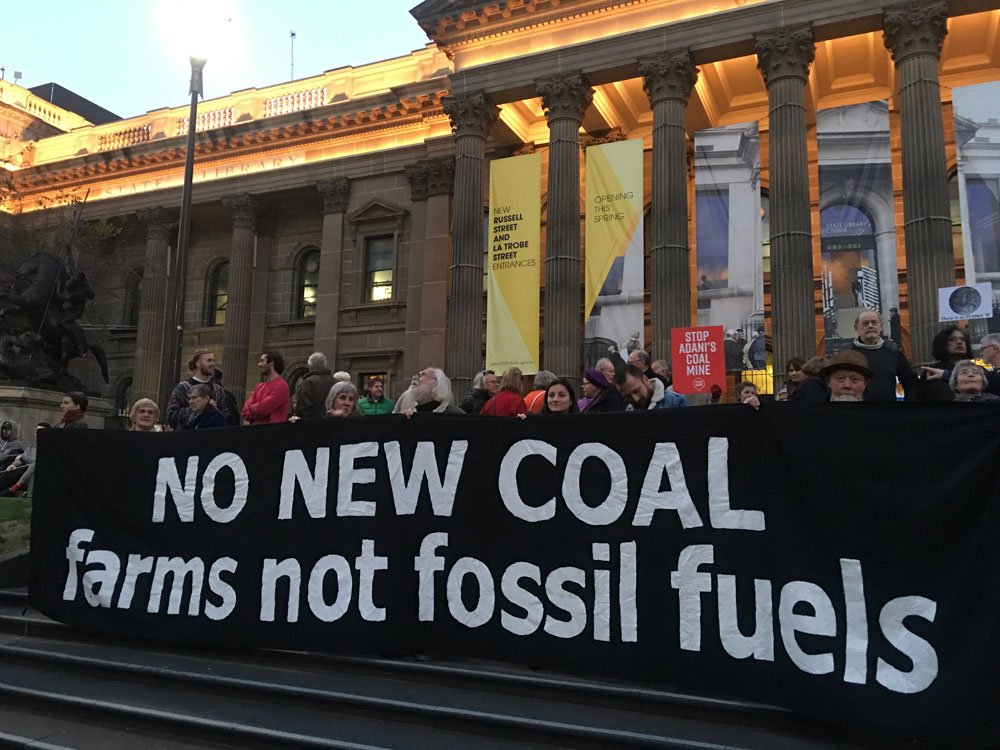
October 20, 2019; The Guardian
A few weeks ago, NPQ wrote about how corporate activism is growing and becoming more apparent. The CEO of Dick’s Sporting Goods had recently turned $5 million worth of assault rifles into scrap metal to avoid complicity in the US gun violence epidemic. This week, we turn our attention to the other side of the globe, where Australian engineers are resisting work with the fossil fuel industry.
Several parallel groups are involved, including Engineers Without Borders and several national chapters of Engineers Declare.
On Sunday, the Guardian’s Ben Smee reported that fossil fuel companies are having a hard time finding engineers to work on their projects. Robert Care, the 2014 professional engineer of the year, said that if asked today, he would not accept projects he previously worked on in the extraction industry. He also said that firms accepting controversial projects could face a “revolt” among staff.
Other industry experts weighed in, confirming Care’s opinion that today’s working engineers are less willing to accept contracts in the extraction industry or on other projects that don’t consider their climate impact.
Sign up for our free newsletters
Subscribe to NPQ's newsletters to have our top stories delivered directly to your inbox.
By signing up, you agree to our privacy policy and terms of use, and to receive messages from NPQ and our partners.
The fossil fuel industry and its allies, naturally, have not reacted well to this trend. Ian Macfarlane, chief executive of the Queensland Resources Council in Australia, said that firms who align with this view are less likely to be hired. Companies who work “on the timetable of anti-resources and anti-jobs activists,” he declared, may see their bids rejected by extraction industry contractors. Since the controversy originated when engineers refused to work with the industry, and not the other way around, this strikes us as a “not if I leave you first” tantrum.
Nearly one hundred firms and over one thousand engineers have signed a 12-part declaration to do better for the climate. Among other things, the declaration commits its signatories to “evaluate all new projects against the environmental necessity to mitigate climate breakdown” and “learn from and collaborate with First Nations to adopt work practices that are respectful, culturally sensitive, and regenerative.” This is the crux of the #EngineersDeclare movement.
Meanwhile, several chapters of Engineers Without Borders, including in Canada and the UK, have joined several governments and others in declaring a climate emergency. (This declaration is one of the goals of the Extinction Rebellion movement, whom NPQ has previously covered.) Some subsets are supported by foundations, such as the Happold Foundation, which supports the structural engineers’ declaration. Others are supported by membership.
In the US, activists have challenged nonprofits to divest from fossil fuels. Universities and museums especially have seen pressure from activists on this issue. But this movement is a bit different: it’s coming from inside the profession, led by the people who have one resource no project can proceed without: the knowledge of engineering. Smee called the engineers’ expertise “the only real asset of most firms.”
We’re thrilled to see employees leveraging their power for good and following the lead of Indigenous folks who have the critical knowledge in this space. We await the growth of Australia’s clean energy sector in response.—Erin Rubin













